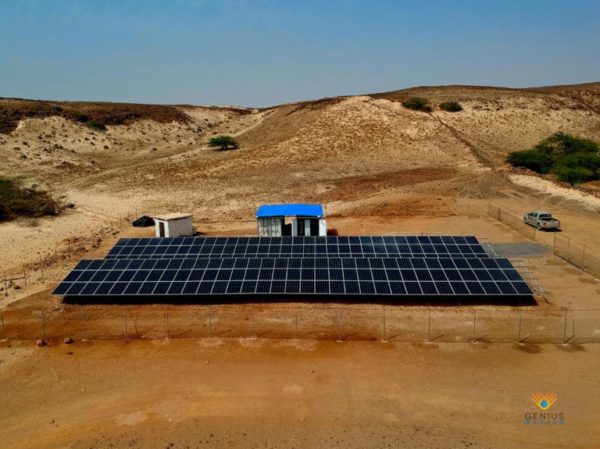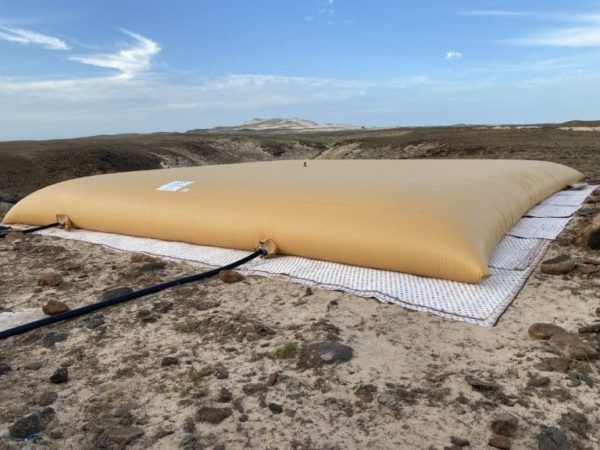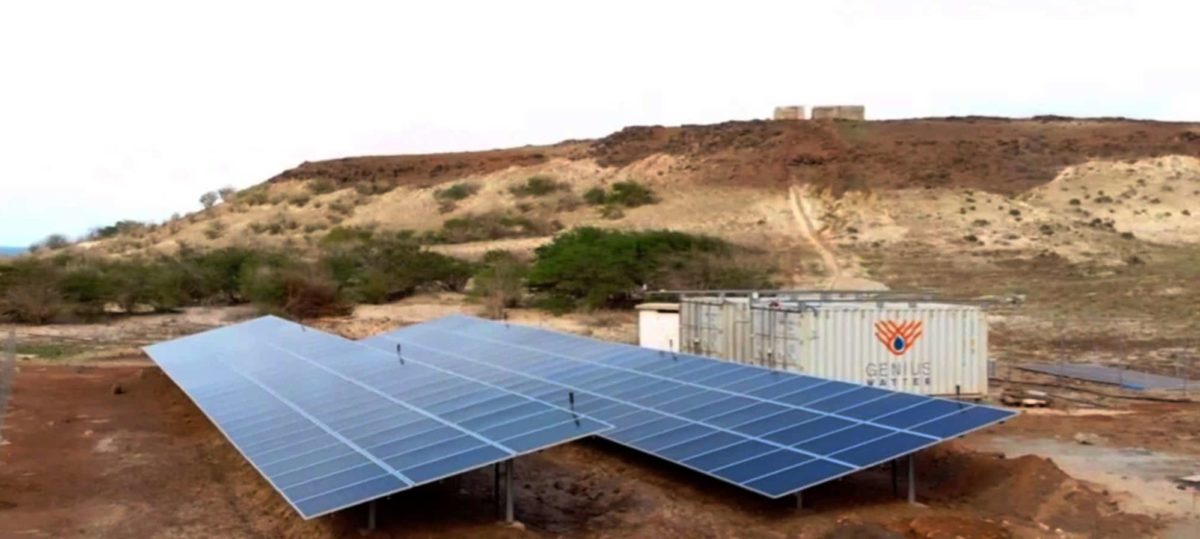From pv magazine International
Italian start-up Genius Watter has developed a desalination solution that is powered exclusively by photovoltaics and is claimed to be an ideal solution for rural areas with no connection to grid electricity.
“We have completed a project in Cape Verde in 2020 and we are now developing [an]other five projects, of which three are expected to be built in 2021,” the company chairman, Franco Traverso, who is also the chairman of the U.S.-Canadian solar module manufacturer Silfab, told pv magazine.
The battery-free reverse osmosis desalination system is fully containerized and thermally insulated. It is able to produce up to 1,000m3 of potable water per day and is claimed to have a life cycle of more than 30 years.

Image: Genius Watter
The company’s patented technology is said to enable the efficient operation of the desalination unit at variable frequencies, depending on irradiation levels. According to Genius Watter, more than 90% of the available net PV energy is converted to potable water. A storage tank to store water, with a capacity from 50m to 1,000m3 can be also installed within the system’s fenced spot and used for water demand during nighttime or on cloudy days. According to Traverso, the desalination unit needs maintenance work only twice a year, which would be required to refill consumables and change filters.
The system is currently available in two versions, for brackish water and seawater desalination. The former version can be built with freshwater output ranging from 20m3 to 500m3 per day and a required PV capacity of 9.6 kW to 241.1 kW. The seawater model may be deployed with the same freshwater capacity and a required PV capacity of 31.6 kW to 709.6 kW.

Image: Genius Watter
Each system has a solar-powered water pumping unit that is able to pump feed water from 250m underground and supply constant pressure to the reverse-osmosis unit. The proposed solution may also be equipped with an automatic chlorination and re-mineralization unit to deliver potable water meeting World Health Organization (WHO) standards. It may also be coupled with an additional power source if constant daily water volumes are necessary.
Genius Watter is offering the desalination solution with its own, patented drone technology for underground water aquifer detection, which is claimed to be able to precisely detect volume, depth, and GPS positioning of water sources at a depth of up to 300m.
The cost of the system, including the PV system, is less than €4000/m3/ day. “For a 90m3/day plant of desalinated brackish water, the turnkey cost of the plant, installed in an African country, would be around €330,000,” Traverso explained, adding that the system is produced in Italy by an undisclosed manufacturer with 30 years of experience in desalination and is then tested at Genius Watter’s headquarters in Carmignano di Brenta.
According to the CEO, the system can produce water for agricultural use at an opex of only €0.20/m3.
The company is also considering the possibility of becoming an independent water producer itself through the water-as-a-service financing model. “It is clear that when the water is sold instead of the asset, the sale price of the same increases considerably to leave room for the right margin for the investor who must obtain a reasonable return on his investment,” traverso highlighted. “Even in this case, however, the selling price of the cubic meter of desalinated water is normally competitive, not to mention the advantages of the environmental and social sustainability of the system for obtaining the water and distributing it to users.”
The system is claimed to be particularly suitable for irrigation and livestock farming in semi-desert and coastal areas but also for islands that are affected by a scarcity of fresh water, especially in the summer months when solar radiation is greater.
This content is protected by copyright and may not be reused. If you want to cooperate with us and would like to reuse some of our content, please contact: editors@pv-magazine.com.









Yes